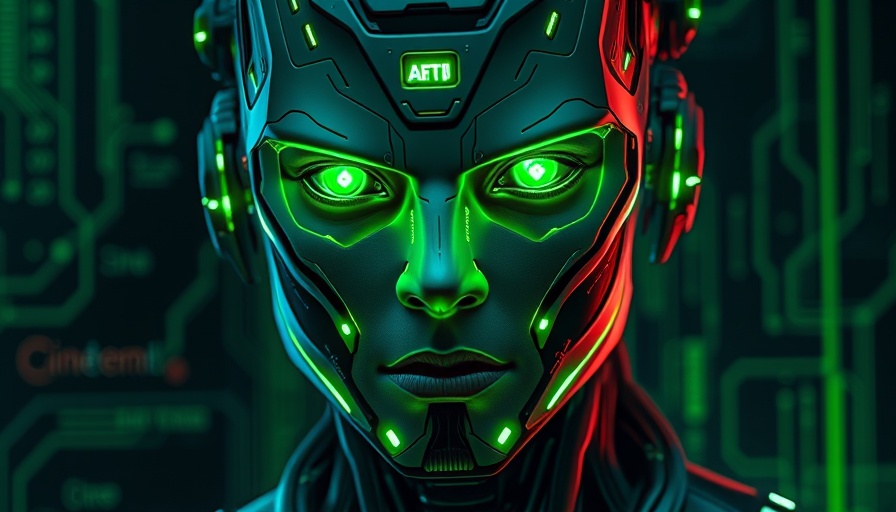
Welcome to the Future: AI Agents Revolutionizing Scientific Discovery
In an era where artificial intelligence is rapidly reshaping various sectors, the recent launch of four superintelligent AI agents by Future House demonstrates a remarkable leap forward. Backed by Eric Schmidt, the former CEO of Google, these agents—named Crow, Falcon, Owl, and Phoenix—are designed to tackle complex scientific workflows, significantly outperforming traditional PhD research methods.
In Google’s Ex CEO Just Released SUPERINTELLIGENT AI AGENTS Outperforming PhDs, the conversation highlights groundbreaking advancements in AI technology, prompting us to delve deeper into the implications and functionalities of these emerging tools.
Unveiling the Agents: What Each Does Best
At the core of Future House's mission is a commitment to enhancing efficiency within the scientific community. Each AI agent specializes in different tasks, exemplifying the future of research:
- Crow acts as the generalist rapid responder, swiftly analyzing open-access papers to deliver precise, citation-rich answers.
- Falcon dives deep, aggregating extensive literature—from full-text articles to proprietary databases—curating comprehensive reviews.
- Owl, rebranded from its prototype, acts as a detective, preventing redundant research by checking prior experiments.
- Phoenix, still experimental, functions as a chemistry innovator, designing new compounds and predicting their reactions.
Transforming Research Methodologies: How AI Agents Integrate
Future House provides these agents not as standalone tools but as interconnected resources. Researchers can switch between them fluidly to navigate complex queries, streamlining workflows that typically demand entire teams. For example, an agent might generate a protein annotation with Crow, then fine-tune it with Falcon’s depth before consulting Owl to ensure no previous research was overlooked.
Benchmarking Against Human Researchers
One of Future House’s staggering claims is the superhuman performance of these AI agents against traditional methods. They were benchmarked against both top-tier AI models and human expert researchers, revealing that these agents not only deliver answers faster but also enhance precision and accuracy. However, the public remains skeptical, as there haven't been any groundbreaking discoveries yet attributed to these agents. Still, Future House's transparent methodology—showing every step of the agents’ logic—may help assuage fears about AI hallucinations that plagued past systems.
Addressing Future Challenges with Transparency and Collaboration
Future House is acutely aware of the challenges that AI can introduce into scientific research. The platform operates on a model of openness, encouraging community feedback and constantly refining its algorithms. By utilizing extensive databases and external tools, particularly in chemistry, they aspire to mitigate common pitfalls faced by traditional large language models (LLMs) which fail to execute high precision tasks efficiently.
The Road Ahead: What's Next for AI in Science?
Looking into the future, the ultimate goal for Future House is to evolve these agents into a full-fledged autonomous AI scientist capable of independently reading literature, spotting inconsistencies, formulating hypotheses, and conducting experiments. With an aim to reduce the backlog in scientific discovery, this could symbolize a paradigm shift in how research is conducted on a global scale.
AI and Ethics: A Balance of Innovation and Responsibility
As we embrace this transformative technology, concerns about ethical implications remain. Future House counters fears of unintended consequences by emphasizing an analytical and transparent approach. Their pitch is simple: to merge human oversight with AI efficiency, enabling researchers to focus on ethical considerations while the AI handles the grunt work.
For those invested in the unfolding narrative of AI technology, Future House's initiative represents a beacon of potential—a draw for researchers who wish to propel their projects. If these agents can substantiate their claims through tangible discoveries, the world of science could be on the brink of significant advancements in efficiency and output.
Are we ready to usher in a new age where AI collaborates with scientists in unprecedented ways? The opportunity is within reach, and the conversation is only just beginning. Engage with your thoughts on this evolutionary technology in the comments below—your insights will shape the dialogue as we navigate these uncharted waters.
 Add Row
Add Row  Add
Add 




 Add Row
Add Row  Add
Add 

Write A Comment